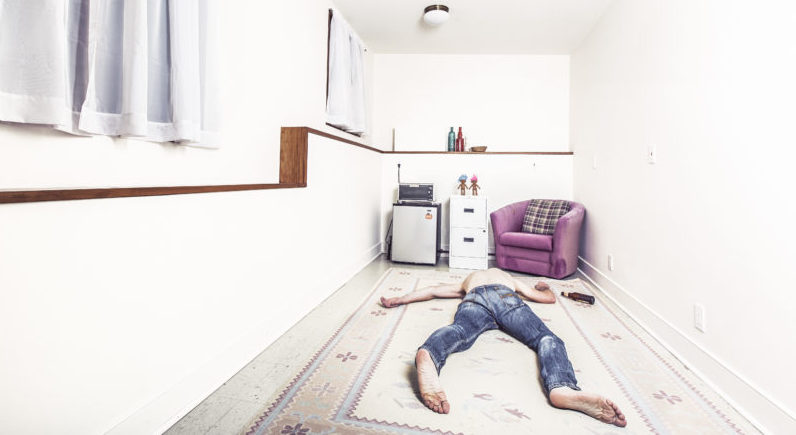By: James E. DelGenio MS, LCPC
Senior Staff Therapist The Family Institute at Northwestern University
Glossary of Terms for mood disorders.
The purpose of this glossary is to begin to familiarize and educate you with psychiatric language. There are many web sites such as WebMD, National Institute of Mental Health (NIMH) and Substance Abuse and Mental Health Services Administration (SAMHSA) that offer more detailed information. There are also many support groups and web sites available via the internet.
Addiction is the preoccupation with acquiring alcohol and drugs, compulsive use of alcohol and drugs despite adverse consequences, and a pattern of relapse to alcohol and drug use despite the recurrence of adverse consequences (Miller, 1991). In other words, alcohol and drug abuse cause problems in your life and you continue to abuse them anyway.
Bipolar Mood Disorders include two types. They are Bipolar I and II. Bipolar I is the more severe of the two with more pronounced mood swings from depression to mania. Bipolar II has milder mood swings with manic phases known as hypomania. This, of course, means less extreme manic behavior.
Both are characterized by:
- Thoughts or plans of self-harm or suicide.
- Inflated self-esteem or grandiosity
- Hostile and aggressive behavior
- Decreased need for sleep or no sleep.
- Unusually talkative, may be difficult or impossible to interrupt.
- Racing thoughts, skidding from subject to subject
- Easily distracted.
- Agitation, inability to sit still.
- Poor judgment, lack of insight into one’s own behavior.
- Buying sprees, reckless spending
- Marked increased sexual activity or risky behavior.
These symptoms, if severe, may result in hospitalization to prevent self-harm or harm to others. If you note 2-or more symptoms consult a psychiatrist and therapist and/or go to the Emergency Room at your local hospital.
Client versus Patient Psychiatrists, Psychologists and some Clinical Therapists refer to the people with whom they work as patients. As a Licensed Clinical Professional Counselor, I am very much aware of the negative stigma attached to people with mental health issues. Therefore, my preference has always been to refer to the people with whom I work as my clients.
Clinical Depression is a biopsychosocial disorder that requires psychiatric intervention (medication) along with therapy that includes education, the use of coping skills and supportive treatment. Depression is not simply a matter of “just pull yourself up by your bootstraps and keep on going.” Associated factors may include both genetic and environmental issues (your experiences growing up) and what was likely inherited by a parent or grandparent. There is usually a family history of depression, mood disorder or alcoholism even if it was never formally diagnosed. Though there may be periods of remission, clinical depression requires ongoing psychiatric treatment, medication, psychotherapy at the very least, on an intermittent basis most probably for life.
Couples may be married or unmarried, gay or lesbian. I believe that mood disorders and the accompanying relationship issues are for the most part universal.
Dual Diagnosis means that two or more independent disorders exist in the same individual. For our purposes here, mood disorder and alcohol, substance abuse complicate and exacerbate one another. Specifically, a mood disorder and alcohol and/or substance abuse exist independently of one another, but each makes the other worse. Both are bio-psycho-social disorders with similar symptoms. They are lifelong disorders which cause the patient to be prone to relapse to symptoms and alcohol or substance abuse. Both disorders require integrated psychiatric treatment, psychotherapy, a social support network and array of supportive services for effective treatment.
Delusions are false or irrational beliefs, psychotic in nature and are typically associated with severe and persistent mental illness such as with a diagnosis of schizophrenia. This includes illogical thinking, irrational negative beliefs and behavior often accompanied by grandiosity and suspiciousness. The person is out of touch with reality and no amount of reasoning, logic, begging or pleading will help the individual. The only appropriate intervention is regular psychiatric support and medication taken as prescribed. This is typically the active phase of a psychotic disorder that has yet to be treated or is caused by non-compliance with medication. Hospitalization may be necessary to ensure the safety of the client and the community.
Expressed Emotion (EE) Lack of civility and respect are known to have a detrimental effect on marital and family relationships. The expression of negative emotions toward or even in the presence of a person with a mood disorder is a major contributor of relapse to active symptoms. Negative expressed emotion includes critical comments, hostility, anger and conflict over involvement of relatives toward a person with a mood disorder in an attempt to help the individual in the management of the disorder. High EE, as it is known, is easily internalized and is known to cause family conflict, risking relapse to active symptoms and abuse of alcohol and substances.
Family Conflict refers to the disruption of family and other relationships due to depression and other mood disorders. “Though family conflict is not a symptom per se, it is present often enough that it be given symptom status”. (Samuel J. Keith, 1985) Mood disorders or dual diagnosis almost always affect relationships. As a consequence, a person afflicted may eventually become isolated without the support of a spouse, family or friends because the conflict created by the disorder becomes an obstacle to maintaining the relationship.
Hallucinations are a positive symptom (they are present and active) and refers to hearing, seeing, feeling, even smelling things that are not real. Auditory hallucinations (hearing voices), for example, is the most common symptom associated with a diagnosis of schizophrenia. These voices may warn of impending danger, tell a person what to do, and are typically critical of the person. Medication non-compliance is typically an issue for someone already diagnosed with the disorder who is experiencing hallucinations.
Thyroid refers to thyroid dysfunction which can have a major impact on mood. There are many other physical disorders which can also affect your mood. Check with your doctor and have yearly physical exams.
Lack of Civility and Respect includes yelling, screaming, swearing, name calling and sarcasm. This is a major cause of marital discontent and resentment. It undermines the foundation of a relationship.
Case Scenarios are used to show common symptoms and relationship issues. Any semblance to a real person, family or couple is purely coincidental.
Medication Non-Compliance means not taking the medication as prescribed. This is undoubtedly the most common cause of relapse to symptoms, possibly resulting in hospitalization and unfortunately increases the risk of dangerous behavior and suicide. Medication compliance means “I take my medication every day as prescribed.” If you have concerns or medication side effects, contact your doctor or go to the emergency room.
Medication Education is typically done by the psychiatrist and therapist and is designed to discuss:
1. The benefit of and reasons for the use of medication including the risks of not using medication.
2. Importance of medication compliance i.e., taking it as prescribed.
3. The possible side effects and the potential allergic reactions.
4. The importance of psychotherapy in conjunction with medication.
5. The effects of alcohol, substance use, nicotine and caffeine have on symptoms and medication.
6. Relapse Warning Signs indicating the presence of active symptoms (positive symptoms) usually controlled by medication. In this case, a reevaluation of the medication by the Psychiatrist is indicated.
Mood Disorder is a generic term for psychological disorders which include situational depression, mild to severe depressive disorders, bipolar disorders, anxiety disorders, phobias, and other disorders which include personality disorders and alcohol or drug dependence. Alcoholism and addiction are commonly associated with mood disorders. Sixty to 70% of those with a mood disorder are likely to have issues with alcohol and substance abuse. If you don’t currently have an alcohol issue, studies show you may be at risk with just casual use.
Negative Symptoms refer to those symptoms which are characterized by their absence. This may reflect the presence of chronic depression, mood disorder or severe mental illness. Psychotherapy which focuses on experiential learning, symptom management and coping skills is typically required. Negative symptoms are generally not as well-controlled by medication. It is for this reason that Individual and Family therapy is needed to address management of these symptoms. Manifestations include:
• Lack of goal directed behavior
• Lack of motivation
• Marital conflict
• Poor judgment
• Lack of insight into one’s own behavior
• Lack of pleasure
• Social withdrawal
• Lack of emotional expression
Precipitating Event This is the trigger not the cause of a mental disorder. It is the proverbial “straw that broke the camel’s back.” It is the stressful life event that triggers the onset of a disorder that was genetically inherited from birth and typically begins to show symptoms early in life but more identifiably between the ages of 18 and 35 years old. Some stressful life event occurs such as: death of a relative or friend, failure at school, alcohol and substance abuse, job loss, or marital conflict. Simply put, there is a multitude of life events that can trigger the onset of a mental disorder. It is human nature to attach your feeling to something that is going on in your life. “She is the cause of my unhappiness.” When in reality, a mood disorder that you inherited genetically is a major contributor to your relationship and social issues. I recommend a psychological assessment by a doctor or licensed mental health professional.
Psychoeducation also known as experiential learning. This is the process of learning the management of a mood disorder with the guidance and support of a skilled therapist. Psychoeducation should also be included in the treatment of marital and family issues associated with mood disorders. Knowledge of the disorder and its symptoms are essential in learning How to be well. I strongly recommend that one have a doctor for the chemical imbalance issues and a therapist for psychoeducation, management and support.
Psychotic Symptoms refer to thinking that is out of touch with reality characterized by positive symptoms or the active phase of severe mental illness (SMI) such as seen with individuals with a diagnosis of Schizophrenia or schizoaffective disorders. These symptoms include hallucinations, delusions and illogical thinking. Some severe cases of mood disorders may also include psychotic features.
Positive Symptoms also known as Relapse Warning Symptoms refer to symptoms that are characterized by their presence and are controlled only by medication. These are the active symptoms of the disorder and are typically a sign of relapse. They are:
1. Mood including low or highly elated mood (mania), negative thinking, rumination and thoughts of self-harm or harm to others.
2. Sleep/Wake difficulties include little or no sleep or reversed sleep wake cycle. Sleeping during the day and being up all night also contributes to the social isolation often seen with mood disorders. Protracted insomnia is the quickest way to relapse to symptoms or hospitalization. Take anyone, even without a mental disorder and keep them awake for two, three or four days and they will become psychotic, out of touch with reality. Significant sleep disturbances in individuals with mood disorder can be devastating. This phenomenon is most common with a diagnosis of bipolar disorder.
3. Poor Concentration means inability to focus or stay on task and may include poor short term memory issues. Relapse warning signs are typically a sign of medication noncompliance or the need to change or adjust the dosage of medication. Contact your prescribing doctor immediately. Positive symptoms cannot be controlled without medication.
Rumination refers to the negative thoughts that rerun over and over in one’s mind. This symptom can only be managed with medication.
Social Dysfunction refers to failed relationships, family conflict and marital issues associated with depression or other mood disorders. The most common characteristics of social dysfunction are:
• Hostility, irritability
• Conflict
• Withdrawal, Isolation
• Lack of close personal ties
• Relationship issues
• Employment issues
Situational Depression is a mood disorder that manifests itself typically around a specific loss or grief. This may include marital conflict, divorce, job loss, health issues and death of a relative or friend. This form of mood disorder requires therapy to work through the grief issues and may be helped by the use of antidepressants for a period of six to eighteen months.
Thought Disorder refers to confusion or the inability to concentrate on a single thought or subject. A person may be easily distracted or may jump from one subject to another (skidding). The speech pattern does not make sense, or the person may become unable to complete a thought (blocking). Short term memory may also be affected.
Work via zoom.
Now I can work via zoom with anyone, anywhere in the country and it may still be covered by BCBS Insurance. Call James E. DelGenio MS, LCPC, Senior Staff Therapist at The Family Institute at Northwestern University, 847-733-4300 Ext 638.
http://manageyourmood.net
http://family-institute.org
http://takenotelessons.com Effective online, one on one, SAT, ACT, GRE, test preparation, via face time or skype.
Disclaimer: This material is meant to be used in conjunction with psychiatric treatment, medication, if necessary, and supportive therapy. Always share this material and your questions about this material with your doctor and therapist.







